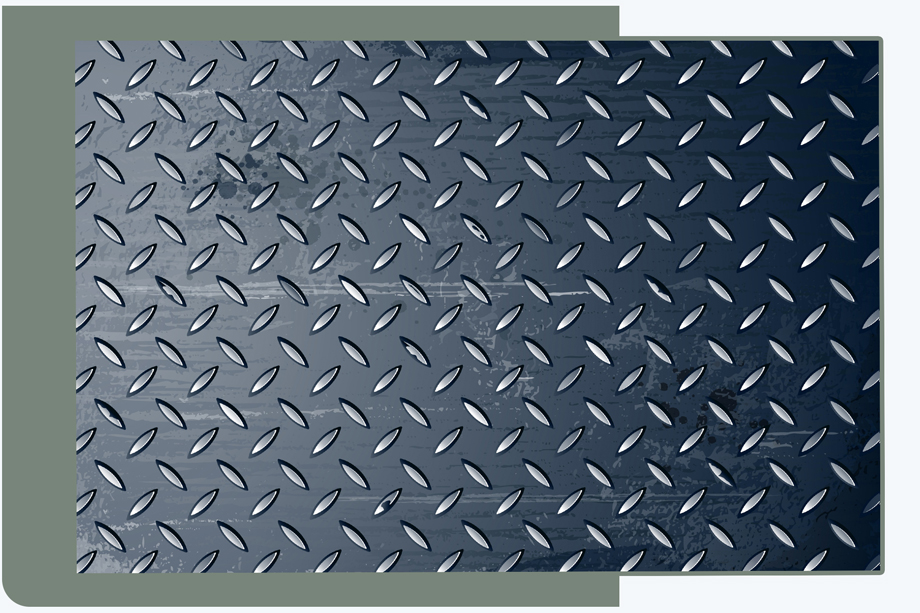No products in the cart.
Steel sheet is a crucial component in the manufacturing industry. Due to its exceptional properties, including high corrosion resistance, flexibility, and recyclability, it finds application in various industries. Steel sheets are used in the construction of buildings, automobiles, household appliances, and even in medical and food industries. Given the numerous advantages they offer, the use of steel sheet is considered an environmentally-friendly and cost-effective solution for many industries


The price of stainless steel sheets depends on several key factors, including the type of stainless steel, sheet dimensions, and whether pricing is based on weight or per piece. Market fluctuations also impact pricing regularly. For the most accurate and up-to-date rates, we recommend contacting our sales experts directly for a quick and personalized price quote
A stainless steel sheet is a metal alloy primarily composed of iron, combined with elements such as carbon, chromium, nickel, and molybdenum. These elements enhance its performance, giving it outstanding corrosion resistance, exceptional durability, high strength, excellent formability, and a polished, attractive appearance. Thanks to these properties, stainless steel sheets are widely used across various industries, including automotive manufacturing, construction, home appliances, and medical equipment
Corrosion Resistance: Ideal for harsh and humid environments
High Strength and Durability: Long-lasting even under mechanical stress
Formability and Weldability: Easy to cut, shape, and weld for customized applications
Aesthetic Finish: Smooth, shiny surface adds a modern look to any project
Due to their versatility and high performance, stainless steel sheets are a preferred choice in both industrial and architectural applications, making them essential materials in today’s advanced manufacturing landscape
Stainless steel sheet is produced through a complex steelmaking process that begins with melting raw materials—primarily iron, chromium, nickel, and molybdenum—in an electric arc furnace. Once fully molten, the alloy is cast into large slabs or blooms and allowed to cool. These solidified slabs then undergo hot rolling to reduce thickness and are further refined through cold rolling for a smoother, more precise finish. To enhance corrosion resistance and surface quality, the sheets are treated with pickling (acid cleaning) and polished if required. This advanced process ensures the production of high-quality stainless steel sheets used across construction, automotive, industrial, and food-grade applications
Stainless steel sheets come in various finishes and types, each tailored to specific aesthetic and functional needs across industries
This type features an ultra-smooth, highly reflective surface similar to a mirror. It’s widely used in interior design, kitchen appliances, and decorative applications where visual appeal is essential
With a non-reflective, smooth surface, matte stainless steel is ideal for industrial equipment, architectural façades, and structural applications. It offers a professional look with reduced glare and fingerprint resistance
Characterized by fine, parallel lines across the surface, brushed stainless steel is popular for elevators, home appliances, and decorative paneling. It offers a modern aesthetic while concealing scratches effectively
Also known as embossed or decorative stainless steel, this type features unique textures and raised patterns. It’s commonly used in luxury interiors, building exteriors, automotive trims, and retail displays to enhance visual impact
Known for its excellent corrosion and rust resistance, stainless steel sheets are widely used in the food industry, medical equipment, household appliances, and storage tanks. Their durability and hygienic properties make them ideal for environments requiring high cleanliness and resistance to oxidation
Characterized by high strength and hardness but lower corrosion resistance, carbon steel sheets are primarily used in construction, building frameworks, and manufacturing machinery parts. Their robustness makes them suitable for structural applications where corrosion is less of a concern
These sheets contain various alloying elements to enhance mechanical properties such as strength, toughness, and heat resistance. Alloy steel sheets are extensively used in the oil and gas industry, automotive manufacturing, and production of heat-resistant components
Designed to withstand high temperatures and thermal stress, heat-resistant stainless steel sheets are essential in petrochemical plants, power generation facilities, and furnace construction. Their ability to maintain integrity under extreme heat makes them indispensable in these demanding environments.
These specialized stainless steel sheets serve diverse industrial needs, ensuring optimal performance and longevity across multiple sectors
The most important standards for stainless steel sheets include ASTM and AISI, which are widely recognized and used across the industry. These standards define precise technical specifications and chemical compositions for various stainless steel grades such as 304, 316, 430, and 409, each with its unique properties and applications. In Europe, DIN and EN standards are commonly followed, while JIS standards are prevalent in Japan. Adherence to these standards ensures that stainless steel products deliver consistent quality, reliability, and optimal performance across different industrial uses


All rights reserved for Sahand Steel Didar. Any unauthorized copying or reproduction will be subject to legal action